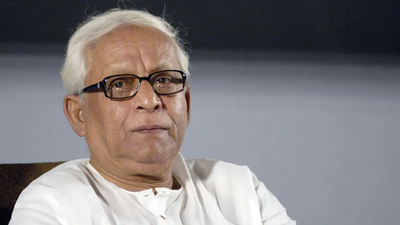
Bhattacharjee, who led West Bengal from 2000 to 2011, was a prominent figure in the Communist Party of India (Marxist) (CPI(M)). His tenure is noted for its attempts to rejuvenate the state's industrial sector and his efforts to balance development with social welfare. Under his leadership, West Bengal saw significant infrastructural and industrial advancements, including the establishment of the IT and manufacturing sectors.
Born on March 1, 1944, Bhattacharjee began his political career in the 1960s, rising through the ranks of the CPI(M). His early involvement in the student movement and his subsequent entry into the legislative assembly laid the foundation for his future leadership role. He became Chief Minister in 2000, succeeding Jyoti Basu, and was known for his pragmatic approach to governance and his focus on economic development.
During his time in office, Bhattacharjee championed several key projects aimed at modernizing West Bengal’s economy. One of his most notable achievements was the industrial revival plan, which included initiatives to attract investments and develop infrastructure. His policies, however, were met with mixed reactions. While some hailed his efforts as a turning point for the state's economic landscape, others criticized them for not adequately addressing the needs of rural and agricultural communities.
Bhattacharjee's administration was also marked by his strong stance on education and health. His government invested in expanding educational institutions and healthcare facilities, aiming to improve the quality of life for the state's residents. Despite facing challenges, including protests against land acquisition policies and criticism from political opponents, Bhattacharjee remained a steadfast figure in West Bengal’s political arena.
After stepping down from the Chief Minister's role in 2011, Bhattacharjee continued to influence West Bengal’s politics as a senior leader of the CPI(M). His retirement from active politics did not diminish his stature in Indian political history. He was widely respected for his commitment to public service and his contributions to the state's development.
Bhattacharjee's passing has prompted an outpouring of tributes from across the political spectrum. Leaders from various parties have acknowledged his role in shaping West Bengal’s modern history. His legacy includes both his efforts to stimulate economic growth and his dedication to improving the lives of West Bengal's citizens.
The impact of Bhattacharjee’s tenure is evident in the ongoing debates about his policies and their effects on the state’s development. His death concludes a chapter of West Bengal's political narrative, leaving behind a complex legacy of achievements and controversies. As the state reflects on his contributions, Bhattacharjee’s role in shaping West Bengal’s journey through the early 21st century will be remembered as a significant period of transformation.
